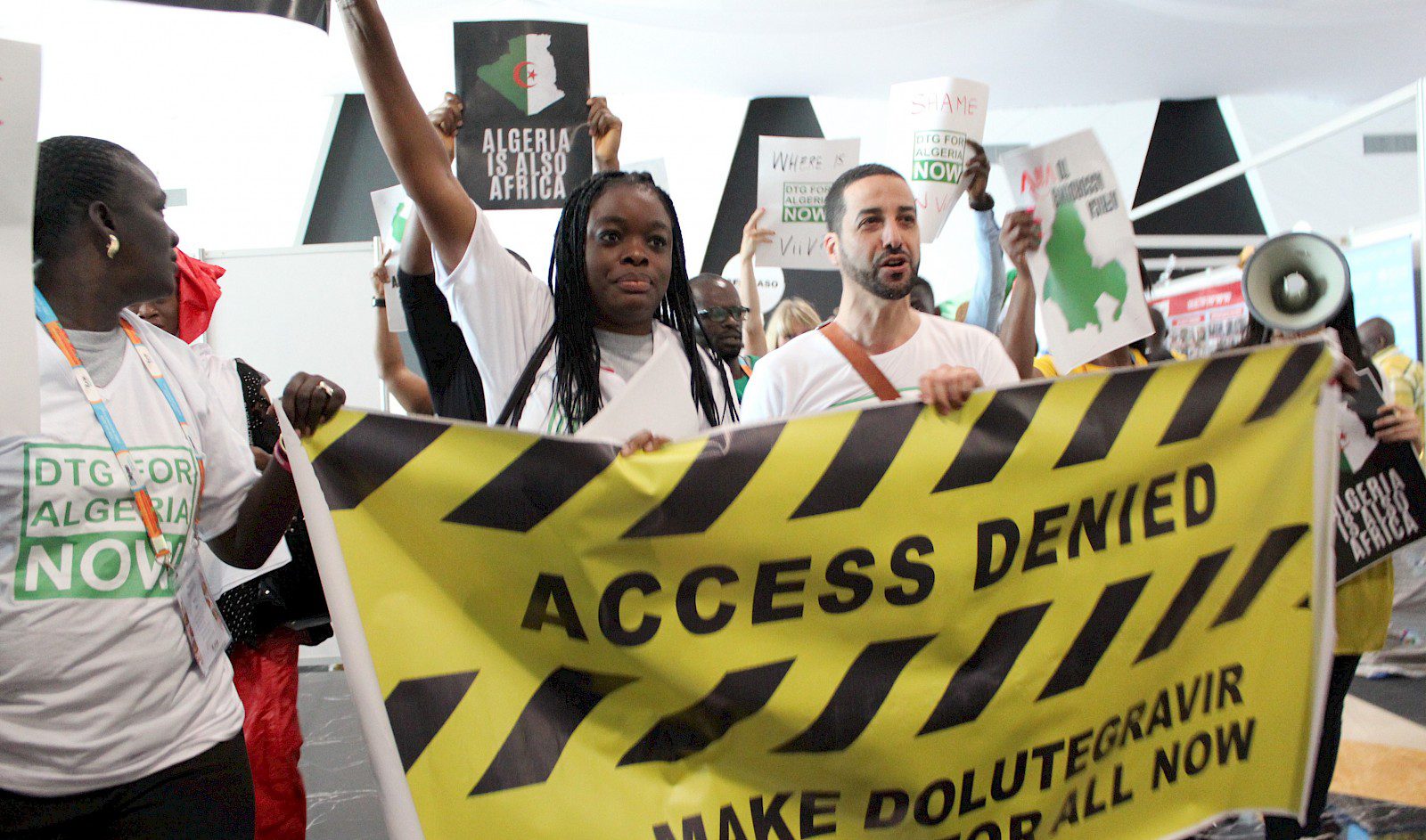International Treatment Preparedness Coalition
The ITPC Consortium brings together nine networks and organizations to support advocacy by people living with HIV (PLHIV) and other inadequately served populations for health and human rights related to HIV, tuberculosis (TB), Hepatitis C (HCV) and diabetes.
| Grantee type: Global Consortium |
| Grant: $1,820,000 |
| Grant period: 2019-2021 |
| Lead organization: International Treatment Preparedness Coalition Global |
Partner organizations:
|
The ITPC Consortium is led by the International Treatment Preparedness Coalition Global (ITPC), a global network of activists working for treatment access across health issues including HIV, TB, viral hepatitis and diabetes. The other consortium participants include five regional ITPC networks—ITPC Middle East and North Africa, ITPC West Africa, ITPC Latin America and the Caribbean, ITPC Eastern Europe and Central Asia and ITPC South Asia—along with the Global Coalition of TB Activists (GCTA), T1International (a network focused on type 1 diabetes) and Mainline International (a drug user harm reduction network).
- Many effective medicines have been developed in recent years to treat and prevent leading causes of death, including HIV, TB, viral hepatitis and diabetes. Yet most people in the world are not benefitting from these medicines.
- For example, as of 2017, approximately 18 million people living with HIV had not accessed HIV treatment, and many more lacked the regular viral load testing and other services to ensure treatment success. About 5 million people with active TB did not have access to potentially life-saving medicines, slowing progress against one of the most-ignored global epidemics. Over 100 million people in low- and middle-income countries were untreated for hepatitis C. Those millions of people, along with their families, friends and communities need support to mobilize, demand access to treatment, and actively seek out testing and treatment where it can be found.
- Treatment access is hindered and blocked in many countries by human rights contexts, including laws that criminalize key populations and restrict organizing and advocacy by civil society; continued political unwillingness and inability to prioritize and fund programs for key populations; and widespread discrimination in health care settings.
- In the history of the HIV response, activism by people living with HIV and their allies has been central to the funding of research, drug development and approval, and design and funding of services. Ongoing activism is needed to press for accessible treatments for HIV, TB, viral hepatitis, diabetes and other health conditions.

RCF funding 2019-2021
The ITPC Consortium received US$ 1.82 million in funding from the Robert Carr Fund (RCF) for work during 2019-2021. This funding is allocated to both core and strategic program costs and builds on sustained funding to ITPC networks since 2013.
Geographic coverage
The ITPC Consortium is a global consortium, and includes regional networks working in West and Central Africa, the Middle East and North Africa, Eastern Europe and Central Asia, South Asia, and Latin America and the Caribbean.
Population coverage
The ITPC Consortium focuses on the empowerment, leadership, health and rights of people living with HIV, other people in need of life-saving treatments for TB, viral hepatitis and diabetes, and other inadequately served populations advocating for access to health services and human rights.
Activities 2019-2021
With RCF funding in 2019-2021, consortium partners will work to strengthen national, regional and global organizing, advocacy for human rights, and campaigns for greater access to affordable medicines and health services. Examples of activities include:
- ITPC will continue to invest in the organization strength of five regional ITPC networks—ITPC Middle East and North Africa, ITPC West Africa, ITPC Latin America and the Caribbean, ITPC Eastern Europe and Central Asia and ITPC South Asia—and, through its growing Global Activist Network (GAN) structure and Activist Development Program (ADP) training, will cultivate a pool of global treatment activists who are active on treatment access issues related to HIV, TB, viral hepatitis and diabetes.
- ITPC and GCTA will work together to further develop network-organizing approaches and systems that propel movement-building and collaboration among HIV and TB activists and organizations and promote a rights-based, people-centered TB response.
- ITPC and T1International will document the relative costs and cost-benefits of ensuring access to insulin and diabetes-related care for PLHIV who are insulin-dependent, to inform greater collaborative advocacy among HIV and diabetes activists.
- ITPC and Mainline International will conduct research to document the status of prison health and treatment access for people who inject drugs in Indonesia, and current access to services and treatment among women who use drugs in Kenya, to inform global advocacy initiatives.
The ITPC consortium will continue to host annual regional Community Advisory Boards, which are platforms for activists to engage with originator and generics drug company representatives and devise access strategies for HIV, TB, HCV and diabetes treatment.
Intended results 2019-2021
The intended results from this work during 2019-2021 will include:
- Network strength and influence: New partnerships will be formed for treatment advocacy across multiple health issues, including HIV, TB, viral hepatitis and diabetes. Treatment activists in five regions—West and Central Africa, the Middle East and North Africa, Eastern Europe and Central Asia, South Asia, and Latin America and the Caribbean—will have support for coalition meetings, trainings, communications platforms, and direct funding for globally and regionally informed advocacy.
- Access to services: Treatment activists will document advocacy needs and develop advocacy strategies to improve health service access across the multiple health issues of HIV, TB, viral hepatitis and diabetes, including for PLHIV who are insulin-dependent, people who use drugs in prisons, and women who use drugs.